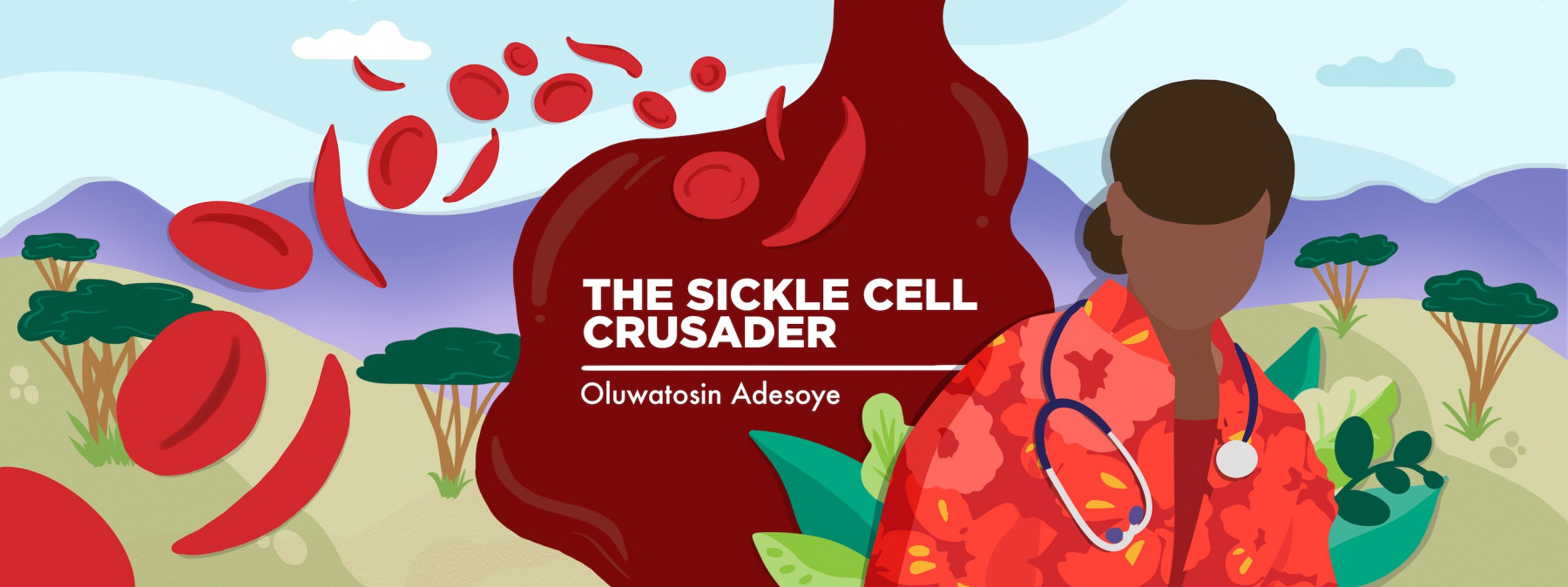Speaking out about my sickle cell diagnosis has helped me heal
I wondered whether I could I find self-love if I hated my disease
Written by |

Living with sickle cell disease in Nigeria, where I’m from, often entails hiding one’s condition because of societal stigma. However, I’ve chosen to defy this norm and speak openly about my sickle cell challenges.
When I was 11, my parents disclosed my health condition to me. At the time, I didn’t consider sickle cell a huge deal as I’d only experienced pain crises, with no other significant complications. I didn’t feel compelled to share the diagnosis with anyone. During my high school years, though, some of my teachers had to be informed because of my occasional health-related absences.
Upon entering an institution of higher learning, I had no reservations about sharing my sickle cell status with close friends, to help them understand my limitations. School authorities and some of my lecturers were also informed about my condition. Despite the prevailing stigma, I had no problem sharing my sickle cell status when necessary, understanding that my disease shouldn’t define me negatively.
I can recall just one instance when I chose not to disclose my sickle cell status to someone — not because I feared stigma, but because I found that person rude and intrusive. During my third year in college, a medical student I’d never met approached me, said she suspected I had sickle cell disease, and wanted me to confirm it. I declined, as I felt it was my own private information.
Yearning for healing
As I grew older and faced more complications of sickle cell, I became reluctant to discuss my condition, even though I never refused to acknowledge it when asked. In fact, I’d adamantly decline to watch movies related to sickle cell, even if those around me wanted to. The various complications I’d experienced, such as avascular necrosis, chronic pain syndrome, and other bone-related issues, already had a severe psychological impact on me. Consequently, I developed a deep aversion toward sickle cell and, at times, perhaps toward myself.
Harboring such intense hatred toward sickle cell reflects a lack of self-love. If we who live with sickle cell expend our energy on hating our condition, it suggests that we, to some extent, harbor hatred of ourselves, since sickle cell is an inherent part of who we are.
There came a moment when I yearned for healing, realizing that I couldn’t generate genuine happiness without self-love; I wanted to break free from hating my condition. I also recognized the urgent need to educate others about sickle cell disease, as the ignorance and misconceptions of it are plentiful and widespread. At this juncture, I decided to speak out about sickle cell, and this act of sharing and teaching has helped me find happiness and healing.
My journey to speaking out was challenging because of some family members. While some were supportive, others expressed discomfort; still others remained silent but displayed visible unease. I nonetheless remained resolute in my mission and refused to let anyone deter me from it. I took the initiative to explain my goals to them and even went so far as blocking some from my social media to spare them any potential hurt.
I went beyond sharing my story and took on the responsibility of educating others about sickle cell disease and its management through various mediums, including social media, newspapers, magazines, support groups, research, and content creation. My family witnessed the healing effect of my advocacy and saw its positive impact on the sickle cell community. Their attitude toward my work transformed from disapproval to love and support.
There’s no shame in living with sickle cell disease, and self-acceptance — of ourselves and our disease — is crucial. It’s not obligatory to discuss your health challenges, but speaking out about them sometimes can be therapeutic. Let’s break free from societal stigmas and make a positive impact on others facing similar challenges.
Note: Sickle Cell Disease News is strictly a news and information website about the disease. It does not provide medical advice, diagnosis, or treatment. This content is not intended to be a substitute for professional medical advice, diagnosis, or treatment. Always seek the advice of your physician or other qualified health provider with any questions you may have regarding a medical condition. Never disregard professional medical advice or delay in seeking it because of something you have read on this website. The opinions expressed in this column are not those of Sickle Cell Disease News or its parent company, Bionews, and are intended to spark discussion about issues pertaining to sickle cell disease.




Leave a comment
Fill in the required fields to post. Your email address will not be published.